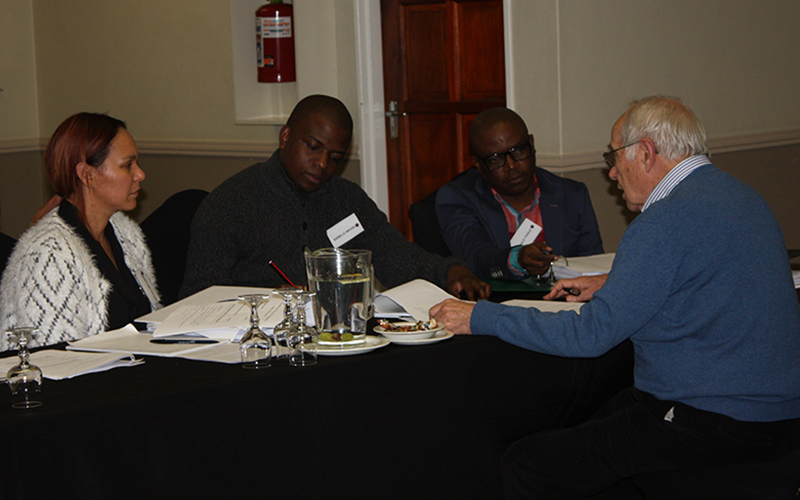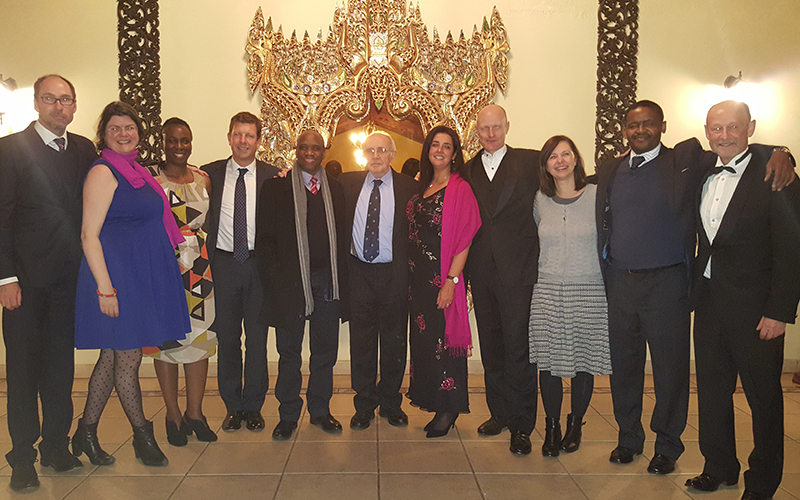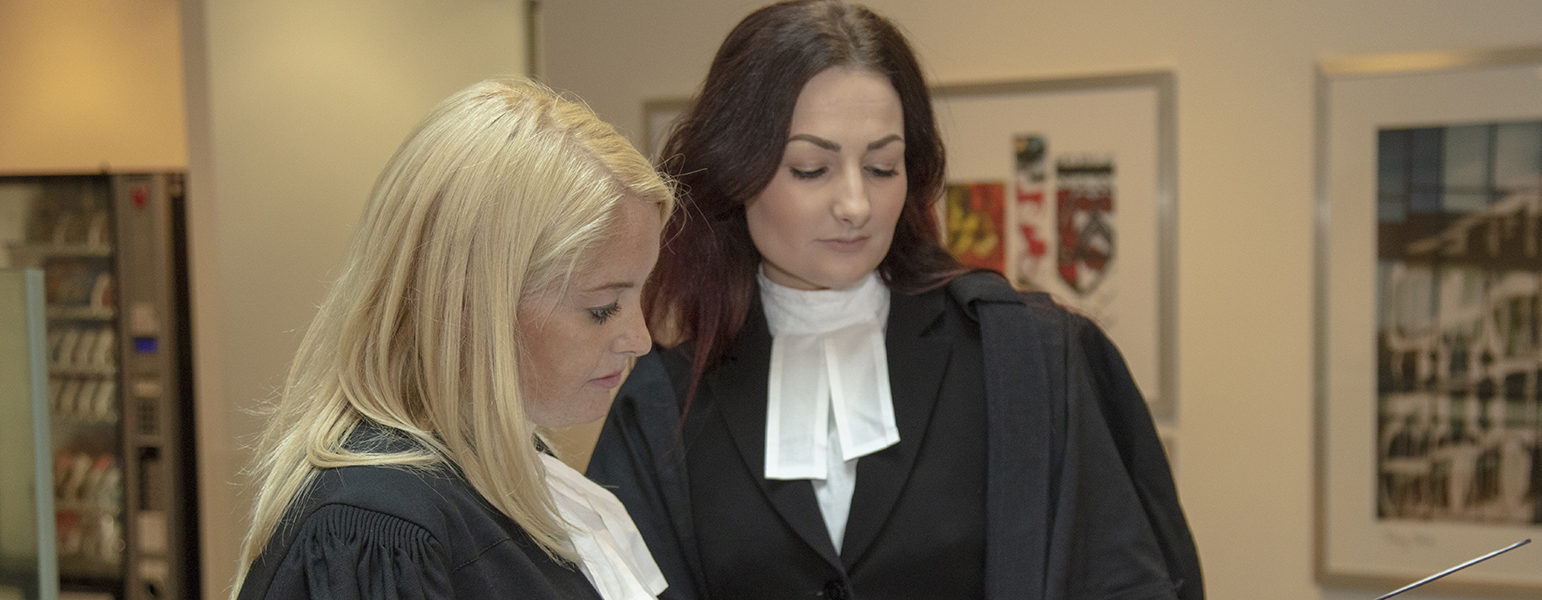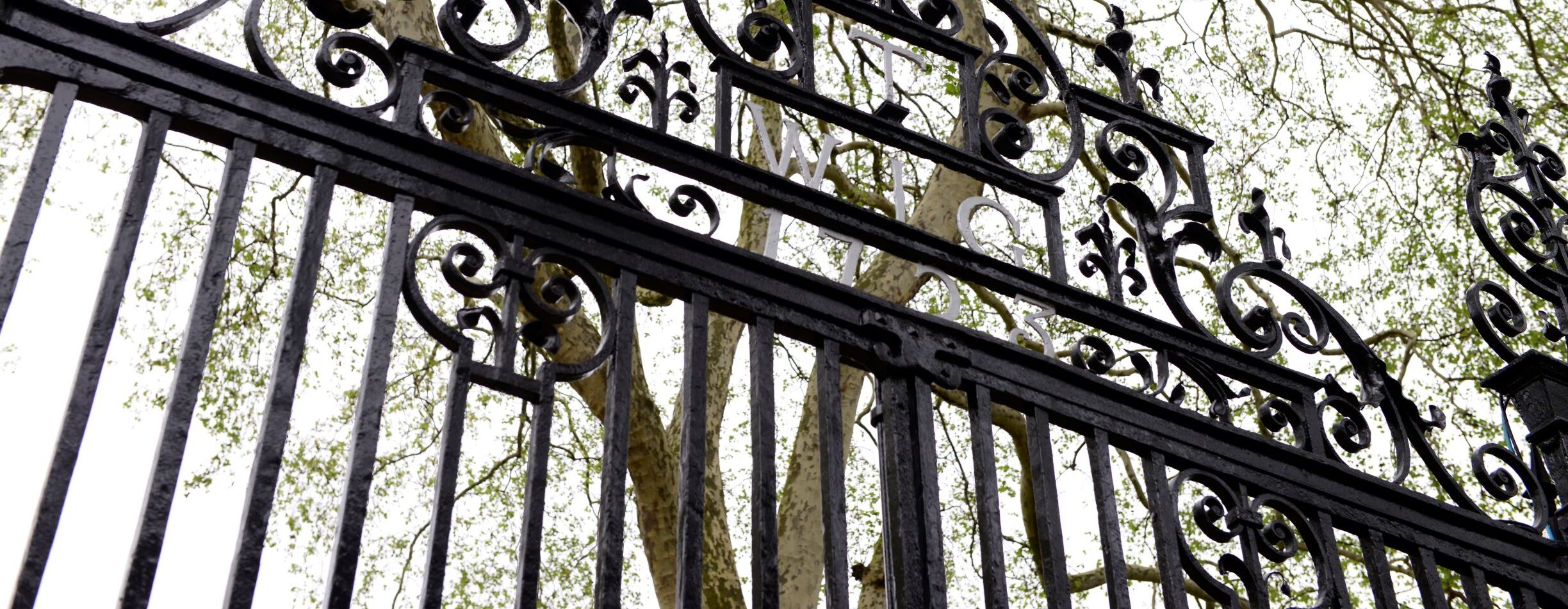South Africa 2016
by Michael Lemmy
Introduction
In June 2016 Ijeoma Omambala, Louise McCullough and myself visited Johannesburg to assist with training on what was the first National Pupillage Advocacy Training Programme organised by the General Council of the Bar in South Africa and only made possible by the support of the Magna Carta Fund for Human Rights and Democracy. Congratulations must go to the wonderful event organiser Advocate Grace Goedhart and the Johannesburg Society of Advocates’ Advocacy Training Administrator, Jacqueline de Gouveia for putting together such an impressive event at such short notice.
The training event was held at the Midrand Conference Centre in Johannesburg where many of the trainers and pupils stayed. We had the benefit of a large room for plenary sessions, four small rooms for the advocacy sessions and a further room for video reviews. Advocacy training followed the ‘Method’ and it was pleasing to see such a high standard of advocacy trainingamongst the many South African advocates, from all regions of the bar. Particular mention must go to Judge Johann Kriegler, a retired justice of the Constitutional Court of South Africa who at 83 continues to support advocacy training with a passion and zest for life which would put to shame many people half his age and Judge Francis Legodi of North Gauteng High Court.
Intensive Training
The course was intense. 8.30am starts. 6pm finishes. A short lunch break. A coffee grabbed here or there. Pupils and trainers had travelled far and wide and there was a lot to pack into the four days. Many of the pupils from the smaller regional bars had received no previous advocacy training. It was essential they gained as much as possible from this experience.

Ijeoma, Louise and I were determined to assist in any way possible. Ijeoma was asked to do a presentation on Unopposed and Opposed Motions. Ijeoma inspired all the pupils but was particularly lauded by the young women who were present. Her success at the bar has empowered the South African pupils. I was asked to delivera plenary session on “Heads of Argument”. I brought an English perspective to drafting – I encouraged them to be persuasive in their writing style and to be concise. All the sessions were well received and my PowerPoint presentation has been circulated amongst the pupils and trainers alike as a guide on good written advocacy. Ijeoma’s pupils and the trainers she worked with liked it when she made a pupil,who was finding it difficult to examine in chief, focus on one paragraph and attempt to get everything out of that paragraph. My pupils took to heart a suggestion (demonstrated to me by Peter Birkett QC) to break a paragraph down into ‘bars’ like a musical score. Pupils and trainers alike thrived on the international element that we brought to the course and we as international trainers thrived on seeing practitioners from another jurisdiction teaching the ‘method’. We all had the benefit of working with most, if not all, of the South African trainers. Judge Kriegler was impressive and some of the South African trainers amongst the best we have seen. The cross-fertilisation of ideas, headlines and style was of immense value to South African and UK trainers alike and we will all be better trainers for the experience.
Perhaps a number of pupils came a little under prepared on day one – so it seems that pupils are the same the world over. The written sessions were challenging: some pupils had undertaken their drafting exercise in teams and others hadn’t really grasped the point of the exercise. There was little opportunity for the pupils to demonstrate that they had understood and had gained from the sessions with their trainers. On the Northern Circuit our pupils draft their skeleton arguments and they are reviewed before the advocacy training begins. They then have an opportunity to improve on them and use them in the advocacy exercises that follow the next day or later that week. Perhaps all of the written advocacy could be dealt with on day one? I liked the instant video replays: Pupils using their mobile phones to video their session and then being able to review their advocacy and the ‘review’ with the benefit of another trainer. The pupils seemed to enjoy this aspect of the training.
Each day’s training was followed by dinner. In an ideal world this was an opportunity for trainers and pupils to socialise together but most pupils retired early to work, quite properly, on the next day’s sessions. Ijeoma, Louise and I enjoyed the company of our South African trainers instead!
Great Improvement
The training finished with a mock trial. The pupils enjoyed themselves. It was absolutely thrilling to see how much the pupils had improved in just four days. Testament, if needed,to the excellence of the training they had received.
The event culminated in a gala dinner with pupils and trainers dressed in traditional clothing, black tie and lounge suits. The pupils stayed and celebrated. Judge Kriegler, Judge Legodi and the English barristers patiently posing for many photographs with excited pupils! Many hands shaken and many friends made.

The pupil feedback to the ATC has been universally positive with many pupils asking for the course to be extended to one or two weeks in duration!
Brave, Gentle and Happy
Ijeoma, Louise and myself were fortunate enough to find a few hours to visit the Apartheid Museum and Soweto before the training commenced. It was a truly moving experience and we were all humbled by such a brave, gentle and happy people. I was able to return to England a day later than my colleagues and made a dash to Pilanesberg and one of its many safari lodges where I had the pleasure of visiting a lion sanctuary, going on a safari drive and doing a bush walk.
In a week that saw the United Kingdom express its wish to leave the European Union, my overriding impression of the South African lawyers I met is of a judiciary, a bar and pupils who believe passionately in the Rule of Law, who are proud that they continue to uphold it and who will do everything in their power to ensure that that remains so and that South Africa continues to flourish. We are proud that in some small way we might have contributed to their ability to do that.
Intensive Training
The course was intense. 8.30am starts. 6pm finishes. A short lunch break. A coffee grabbed here or there. Pupils and trainers had travelled far and wide and there was a lot to pack into the four days. Many of the pupils from the smaller regional bars had received no previous advocacy training. It was essential they gained as much as possible from this experience.
Ijeoma, Louise and I were determined to assist in any way possible. Ijeoma was asked to do a presentation on Unopposed and Opposed Motions. Ijeoma inspired all the pupils but was particularly lauded by the young women who were present. Her success at the bar has empowered the South African pupils. I was asked to delivera plenary session on “Heads of Argument”. I brought an English perspective to drafting – I encouraged them to be persuasive in their writing style and to be concise. All the sessions were well received and my PowerPoint presentation has been circulated amongst the pupils and trainers alike as a guide on good written advocacy. Ijeoma’s pupils and the trainers she worked with liked it when she made a pupil,who was finding it difficult to examine in chief, focus on one paragraph and attempt to get everything out of that paragraph. My pupils took to heart a suggestion (demonstrated to me by Peter Birkett QC) to break a paragraph down into ‘bars’ like a musical score. Pupils and trainers alike thrived on the international element that we brought to the course and we as international trainers thrived on seeing practitioners from another jurisdiction teaching the ‘method’. We all had the benefit of working with most, if not all, of the South African trainers. Judge Kriegler was impressive and some of the South African trainers amongst the best we have seen. The cross-fertilisation of ideas, headlines and style was of immense value to South African and UK trainers alike and we will all be better trainers for the experience.
Perhaps a number of pupils came a little under prepared on day one – so it seems that pupils are the same the world over. The written sessions were challenging: some pupils had undertaken their drafting exercise in teams and others hadn’t really grasped the point of the exercise. There was little opportunity for the pupils to demonstrate that they had understood and had gained from the sessions with their trainers. On the Northern Circuit our pupils draft their skeleton arguments and they are reviewed before the advocacy training begins. They then have an opportunity to improve on them and use them in the advocacy exercises that follow the next day or later that week. Perhaps all of the written advocacy could be dealt with on day one? I liked the instant video replays: Pupils using their mobile phones to video their session and then being able to review their advocacy and the ‘review’ with the benefit of another trainer. The pupils seemed to enjoy this aspect of the training.
Each day’s training was followed by dinner. In an ideal world this was an opportunity for trainers and pupils to socialise together but most pupils retired early to work, quite properly, on the next day’s sessions. Ijeoma, Louise and I enjoyed the company of our South African trainers instead!



